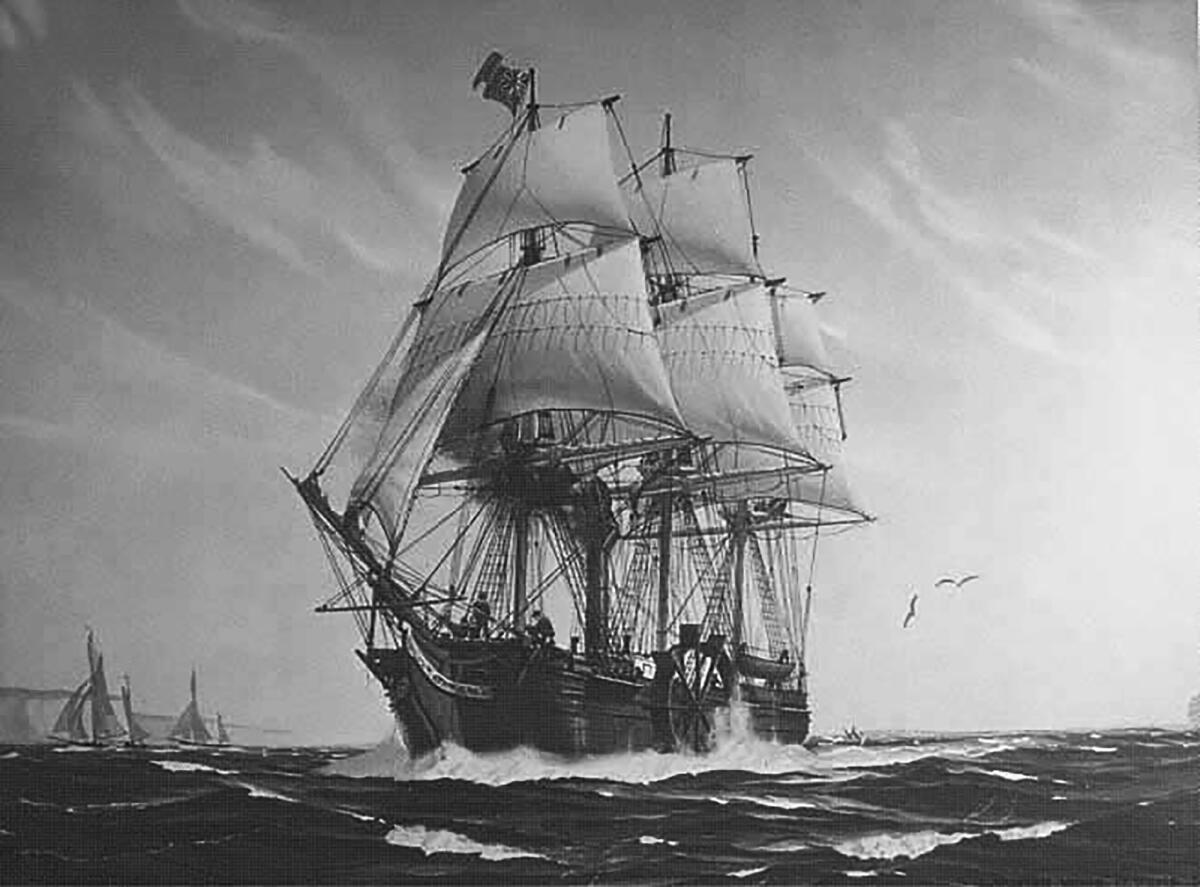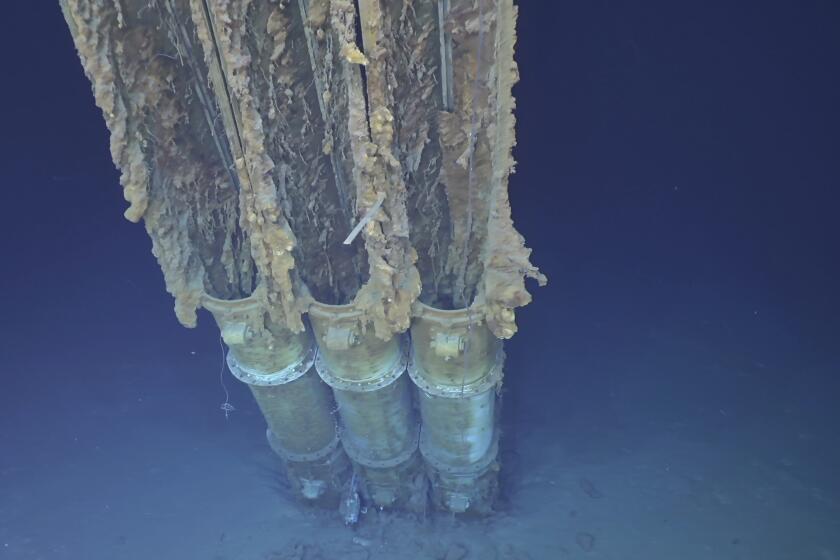Flotsam found in New York may be from famous SS Savannah, which ran aground in 1821

- Share via
NEW YORK — A chunk of weather-beaten flotsam that washed up on a New York shoreline after Tropical Storm Ian last fall has piqued the interest of experts who say it is likely part of the SS Savannah, which ran aground and broke apart in 1821, two years after it became the first vessel to cross the Atlantic Ocean partly under steam power.
The piece of wreckage, roughly 13 feet square, was spotted in October off Fire Island, a barrier island that hugs Long Island’s southern shore, and is now in the custody of the Fire Island Lighthouse Preservation Society. The society will work with National Park Service officials to identify the wreckage and put it on public display.
“It was pretty thrilling to find it,” said Betsy DeMaria, a museum technician at the park service’s Fire Island National Seashore. “We definitely are going to have some subject-matter experts take a look at it and help us get a better view of what we have here.”
It may be difficult to identify the wreckage with 100% certainty, but park service officials said the Savannah is a top contender among Fire Island’s known shipwrecks.
Explorers have searched for the Savannah for more than two centuries but have not found anything they could definitively link to the famous ship. The newly discovered wreckage, though, “very well could be” a piece of the historic shipwreck, said Ira Breskin, a senior lecturer at the State University of New York Maritime College in the Bronx. “It makes perfect sense.”
Evidence includes the wooden pegs, about 1 to 1.3 inches long, holding the wreckage’s planks together, consistent with a 100-foot vessel, park service officials said in a news release. The Savannah was 98½ feet long. Additionally, the officials said, the wreckage’s iron spikes suggest a ship built around 1820. The Savannah was built in 1818.
The USS Samuel B. Roberts, popularly known as the ‘Sammy B,’ was identified broken into two pieces on a slope at a depth of 22,916 feet.
Breskin, author of “The Business of Shipping,” noted that the Savannah’s use of steam power was so advanced for its time that the May 24, 1819, start of its transatlantic voyage is commemorated as National Maritime Day. “It’s important because they were trying to basically show the viability of a steam engine to make it across the pond,” he said.
Breskin said a nautical archaeologist should be able to help identify the Fire Island wreckage, which appears likely to be from the Savannah. “It’s plausible, and it’s important, and it’s living history if the scientists confirm that it is what we think it is,” he said.
The Savannah, a sailing ship outfitted with a 90-horsepower steam engine, traveled mainly under sail across the Atlantic, using steam power for 80 hours of the nearly monthlong passage to Liverpool, in northern England.
Crowds cheered as the Savannah sailed from Liverpool to Sweden and Russia and then back to its home port of Savannah, Ga., but the ship was not a financial success, in part because people were afraid to travel on the hybrid vessel. The Savannah’s steam engine was removed and sold after the ship’s owners suffered losses in the Great Savannah Fire of 1820.
The Savannah was transporting cargo between Savannah and New York when it ran aground off Fire Island. It later broke apart. The crew made it safely to shore, and the cargo of cotton was salvaged, but the Augusta Chronicle & Georgia Gazette reported that “Captain Holdridge was considerably hurt by being upset in the boat.”
More to Read
Sign up for Essential California
The most important California stories and recommendations in your inbox every morning.
You may occasionally receive promotional content from the Los Angeles Times.











